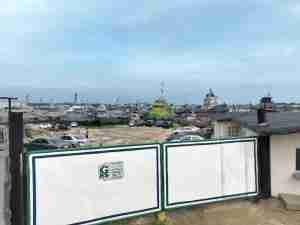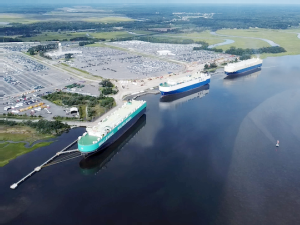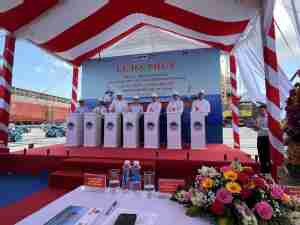Average earnings for capesizes, which typically haul 150,000 ton cargoes such as iron ore and coal, have risen to their highest level in nine months this month and miner BHP Billiton.
paid $12.45 a tonne to ship iron ore from Australia to China, the highest rate since November last year.
The spike in freight rates matches bullish comments on iron ore demand from miners but freight and iron ore analysts and traders say firm rates are unlikely to be sustainable. Macroeconomic headwinds will temporarily slow down iron ore demand and new ships deliveries will weigh on an already oversupplied market, they said.
"Now that profit margins for steelmakers are not as good as they used to be I think mills will book less iron ore in the short term and the freight rates will go back to normal," said Macquarie analyst Colin Hamilton.
"I don't think the spike in freight rates is sustainable. If you look at the supply demand balance for ships there is still plenty of supply available."
Dry bulk ship owners face a glut of new vessels ordered when times were good and some industry players have warned the rout may extend into 2013.
"No matter how high the climb, the market fundamentals are still preventing any feelings of security for the future...these increasing rates can't be sustained and as tonnage supply grows further we will inevitably see another drop in the near future," said Greek shipowner Intermodal in a report.
"On the commodity front things are looking even more worrying. Increasing uncertainty has begun to creep up in both the global steel industry and the overall demand for coal."
Freight Rally
The recent freight rally has been driven by higher coal and iron ore exports from Australia and Brazil to China and by a pickup in Japanese coal imports. Mining in Australia had been disrupted earlier this year by floods, while Japanese import demand had been affected by its earthquake in March.
"Iron ore demand picked up in the seaborne market because free-on-board prices have become more competitive compared with Chinese domestic prices and China continues to experience quality iron ore issues," said Richard Lee, iron ore and freight derivatives trader at Barclays Capital.
However, China's "Golden Week" national day holiday on the horizon will slow the markets pace and weigh on iron ore demand and capesize prices in the short-term, Lee added.
Spot iron ore prices Not so Rosy
Many think a global economic slowdown will weigh on iron ore demand and hit capesize rates in the next few months but miners maintain they are bullish over demand growth for the rest of the year from China, the world's largest iron ore consumer and steel producer.
Top iron ore miner Vale said on Thursday it plans to produce at full capacity in 2012, reflecting optimism that its biggest market China can weather any potential slowdown in developed economies.
Steelmaker ArcelorMittal , a growing iron ore miner, said last week underlying Chinese demand for iron ore was still strong and pinned rumors of canceled shipments to small mills.
BHP Billiton also said the long-term outlook for China demand is positive and told analysts visiting its Pilbara operations this week that it sold eight cape size vessels on the spot market last week at above $175 a tonne, the market rate.
Analysts and traders however, think iron ore demand from China will temporarily slow down in the last quarter of the year on weaker steel demand from the domestic construction sector and weakening export orders.
"Construction steel production appears to have overshot demand in recent months and mills will need to adjust their production run-rates to bring the market back to balance," M










